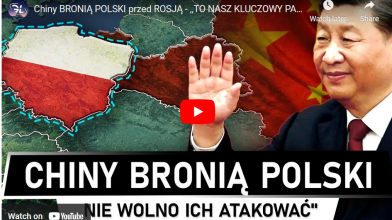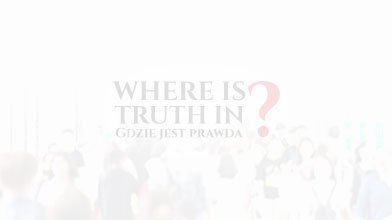Dr. J.Bartosiak is one of the main geopolitical thinkers in Poland whose thoughts and their transformation during the last 2 years I have been observing. Within last several weeks Bartosiak started to ask a fundamental for us question: Kim jesteśmy? My Polacy, kim jesteśmy?
A similar question has been discussed twice here at the site Where is Truth?: on Dec.20, 2020, in the context of West or East, and on Dec.27, 2021 during the discussion of Ziemkiewicz's Great Poland (Wspaniała Polska). These two questions, Whom are we as a nation? What Poland do we want? turn out to be central in the light of the Russian-Ukrainian war. It is very interesting and thought provoking to see the same question in Arestovich's thinking, from broader East Europe perspective: What is the role and future of this region of East Europe stretching out from Baltic states, Poland, Ukraine down through Balkans? To remind everyone that two world wars started exactly here in East Europe, and the possibility of the third is looming in front of us. East Europe demands to be heard!
Arestowycz is Bartosiak's counterpart in Ukraine, close adviser to the president Zelensky, participated in the attempts to create the dialogue with Russians. The interview is led by Bartosiak to see what the view of a member of Ukrainian elite on the contemporary situation is. The main discussion centers on the question: to negotiate with Russians or not?
Independently on whether one agrees with Arestowycz or not, one cannot but admire decisiveness and emotional depths of his will and conviction to win that war.
He asks, what would be goal of negotiations? He admits that as the result of negotiations the world would be safer, but the life of East Europe and Poland is very unclear.
I agree, the plight of East Europe might quite unclear. However, if East Europe demands, in exchange of getting NATO out of Europe to have the essential NATO-equivalent components of RF army posted behind Ural mountains, then we might have gotten something. The situation then is much more clear; then, we have the whole Europe, from Ural to Lisbon as the Experimental Continent of Peace (Continental Experiment of Peace). We would have to then learn, how to negotiate with each other, how to live with each other without the use of arms, exactly as Isaias 2.4 dreamed out, first among the international community of states and then, or simultaneously, among individual citizens, among social classes.
What for negotiations?
If the fear of Russian collapse, then Russia will collapse anyhow because of the defeats till now.
If so why to slow down the process of Russian disintegration.
The only goal [for negotiations] he sees is the control of uncontrolled collapse of Russia as nuclear power.
That is one reason, a good one too.
However there is a deeper reason. All of our history is filled with wars, victories and defeats, never changing structure of either/or always leading to the next war. But now we can change this from tracks leading to the next war to the tracks leading to peace. Due to the strength and heroism of Ukraine in this war, one can change this track now, negotiate from the position of strength vis-à-vis Moscow and offer them a deal they can't refuse: NATO out of Europe, RF army behind Ural. All of us win: the threat to Ukraine and East Europe is eliminated and the main threat to Russia as stated by Putin eliminated as well.
Around the 12:00 minute Arestowycz states an important observation : until there is no vision for that region [that is East Europe], for the West, Russia needs to exist.
I agree with Arestovich. And here probably we part about the content of the vision.
Arestovycz sees error in this thinking because Ukraine anyhow will win this war, even if only by not being defeated, with new weapons or without, and, presumably, this will define the role of the region.
While respectful of Arestovich's views grounded in Ukrainian realities; for me the need for the vision of the region, the Eastern Europe is deeply connected with the questions both Bartosiak and Ziemkiewicz have been pursuing: kim jesteśmy? Jaką chcemy Polskę? jaka jest rola Polski w Europie? Or what is the vision for Poland?
This is a fundamental discussion: what is our vision for Poland?! Poland as a bridge of Peace between East and West?


